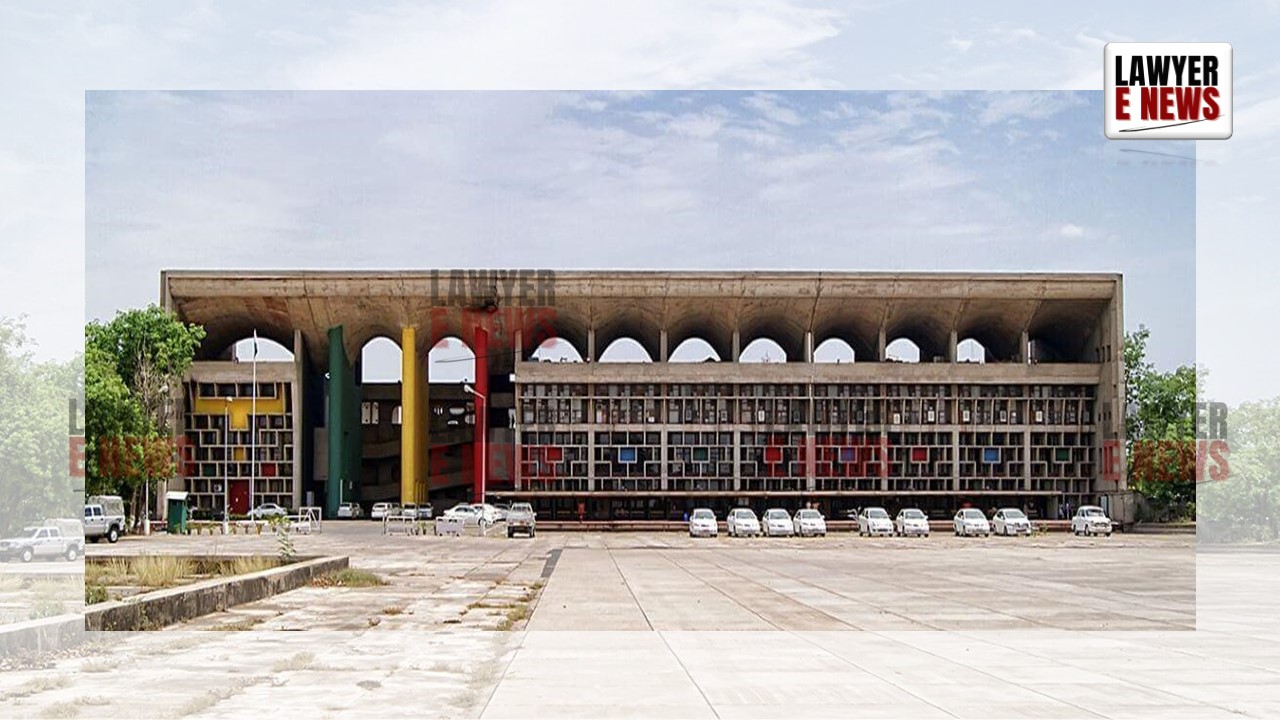-
by sayum
14 February 2026 2:22 PM



Punjab and Haryana High Court dismissed a revision petition filed by Pardeep Kumar Dalal against an order of the Family Court in Gurugram. The Family Court had directed Dalal to pay monthly maintenance of ₹15,000 to his estranged wife and minor daughter under Section 125 of the Code of Criminal Procedure (Cr.P.C.). Dalal sought relief, claiming financial incapacity. However, the High Court upheld the maintenance order, citing his ability to work and history of inconsistent financial claims, and instructed the Executing Court to take coercive action if he failed to comply.
The petitioner, Pardeep Kumar Dalal, contested the Family Court's maintenance order, arguing that he could not afford the amount due to limited income from a job at Akshay Enterprises, where he earned ₹9,800 per month, and responsibilities towards his aged mother. His wife, Reshma Kataria, countered that Dalal had income from property dealings and the sale of ancestral assets. Notably, Dalal’s income disclosures had been inconsistent, suggesting additional sources of income. The Family Court found his claims unreliable, highlighting evidence of a property business and prior financial obligations, which led to the grant of maintenance to his wife and child.
The Court emphasized that Dalal’s argument regarding financial incapacity was insufficient. He was an able-bodied individual capable of work, and his claims of financial limitation were undermined by evidence of ancestral property sales and involvement in property dealings.
Court’s View: The Court observed, “It is the obligation of the husband to maintain his wife… he cannot evade his duty by claiming financial incapacity while holding assets or earning income.” Dalal’s failure to provide credible evidence regarding his financial claims reinforced the decision to uphold the maintenance award.
Dalal’s history of non-compliance with prior court orders, including arrears exceeding ₹5,00,000, indicated a consistent disregard for his maintenance obligations. Despite multiple court warnings and opportunities to clear arrears, Dalal failed to present even partial payments.
Court’s Directive: Due to Dalal’s failure to fulfill his obligations, the Court directed the Executing Court to take “strict action” and initiate appropriate proceedings if he remained in arrears, underscoring that coercive measures were warranted to enforce the maintenance order.
Dalal argued that his wife, being well-qualified, was not entitled to maintenance. The Court, citing the recent ruling in Divesh Sapra vs. Latika Sapra (2024), held that professional qualifications alone do not automatically negate a wife’s right to maintenance. The husband’s financial obligation persists, especially when a minor child is also involved.
"A professionally qualified wife cannot automatically be denied maintenance... the entire facts and circumstances must be considered at the time of determining maintenance."
On Financial Responsibility: "If the husband is healthy, able-bodied, and in a position to support himself, he is under the legal obligation to support his wife."
On Coercive Measures: "Non-compliance with court orders justifies coercive action under the law to ensure financial responsibility toward dependents.”
The High Court dismissed Dalal’s revision petition and imposed costs of ₹1,00,000, payable to the respondents within one month. Assistant Commissioner of Police Surender Singh was directed to ensure Dalal’s presence before the Executing Court for enforcement actions if he failed to comply. The Court's decision emphasizes the enforcement of maintenance orders as a measure to protect the financial rights of dependents against willful non-compliance.
Date of Decision: November 6, 2024
